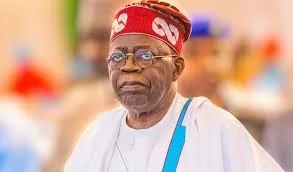
TINUBU’S REINSTATED FUEL SUBSIDY WILL DRAIN ALMOST HALF OF OIL REVENUE – IMF
Nigeria’s reintroduction of a gasoline subsidy months after it was scrapped is expected to guzzle almost half of its projected oil revenue this year, according to the International Monetary Fund.
The implicit subsidy will cost Africa’s largest crude producer an estimated 8.43 trillion naira ($5.9 billion) of its projected 17.7 trillion naira of oil revenue, the IMF said in a report published on Thursday.
Its forecasts according Bloomberg are similar to Bank of America’s, which projects it could cost Nigeria between $7 billion and $10 billion this year if it imports between 18 and 25 billion liters of gasoline, Tatonga Rusike, BofA sub-Saharan Africa economist, wrote in a note.
“Fuel subsidies were reformed in June 2023, however, adequate compensatory measures for the poor were not scaled up in a timely manner and subsequently paused over corruption concerns,” the IMF said.
President Bola Tinubu halted the $10 billion subsidy at his inauguration mid-last year to help the government repair its finances after debt-service costs jumped to 96% of revenues.
The removal and a devaluation of the naira days later, which was aimed at creating a free-floating currency, led fuel prices to more than triple, fanning inflation and protests.
To help Nigerians cope, authorities started capping fuel pump prices below cost reintroducing implicit subsidies by end-2023, the IMF said.
The currency has depreciated by almost 70% against the dollar since last June.
Despite being Africa’s largest oil producer, Nigeria imports most of its gasoline needs because it lacks the refining capacity to meet domestic demand. The hope is that when a 650,000 barrel-a-day oil refinery outside Lagos, owned by Aliko Dangote, Africa’s richest person, and one in Port Harcourt, controlled by state-owned Nigeria National Petroleum Co., come fully online that will change.
The IMF said it expects the fuel subsidy to be completely phased out within two years, as the government scales up its cash transfer program targeted at the country’s poorest. About 40% of Nigerians are extremely poor.While the subsidy was removed on May 29, 2023, “all governments have the prerogative to maintain price stability and prevent social unrest,” Olu Verheijen, a senior energy aide to Tinubu told a news conference in Abuja in March. “If prices are moving, they reserve the right to intervene.”
 Premium News
Premium News